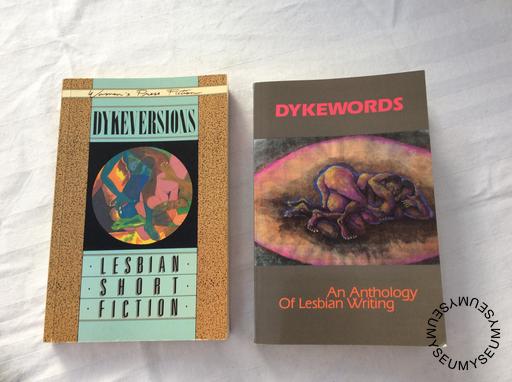How is this object or story important to you?
I was involved in the Women's Press Collective, and I was also on the staff as a managing editor. When I became editor, I thought it was time that Women's Press started to do lesbian publishing. So I and another person in the collective formed the Lesbian Writing and Publishing Guild within Women's Press, and we had to fight with some people in the collective to do that. There was protest within the group about starting it. We started to look for submissions to a fiction anthology as a way of representing diversity of lesbian voices. What was most interesting about it was that we also had to fight to include something about the process, so there's an introduction section called Notes About Racism In The Process. The first part is from the Lesbians of Colour Caucus, and they talk about their struggle as women of colour in the collective, about racism, about wanting to leave and withdraw their work, and fighting racist content within others' work. There's also a statement that the lesbians of colour took in joining our previously all white book. This was the beginning of my learning about anti-racist organizing and my own white privilege. I learned that a lot of sins of omissions were racist, such as not including lesbians of colour in the process or including them later in a tokenistic way. For those of us not only in the manuscript group, but in the whole women's press, this started a discussion about racism because at that time we were an all white collective. It got pretty contentious, and after we broke apart, we published Dykewords, an anthology of work by lesbians of colour, including two first nations women. Another press was formed by the white women who objected to the interpretation of the decisions that had been made as racist. There was another book that was to be published, and a woman in the caucus was employed by the press as editor. While contributing to another anthology, she became the whistleblower. She explained to us that some of the pieces were racist. It was a question of whether or not to stop publishing. The issue was particularly about appropriation of voice. Dykeversions started something and was a catalyst for huge changes in feminist publishing in Canada. It became a national cause celebre, but the interesting thing was there was an objection to washing our dirty linen in public—including racism. Also, the person who distributed the book hated the title and did not want the word Dyke in the title because they thought it would not sell. This says something about what was happening in 1985 or 1986.
What does it add to the story of Toronto?
Toronto is a centre of cultural production, including publishing. We had a hard time getting submissions from outside major cities because Toronto has been a safer place to be out. Only two people used pseudonyms when they published in the book, and one of them might have been a trans woman.
How old do you think it is?
From late 1980s and 1990s
